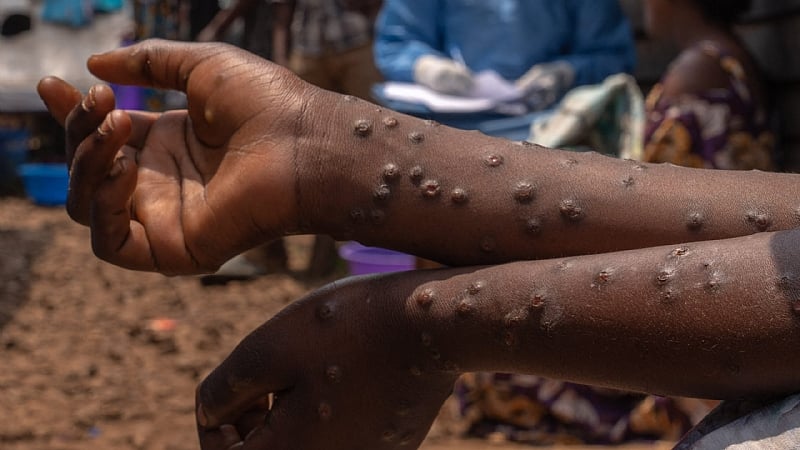Ghana is grappling with a growing mpox outbreak, marked by the country’s first confirmed death since the resurgence of the virus in May 2025. The Ghana Health Service (GHS) reported 23 new cases between July 18 and July 22, pushing the nationwide total to 257 confirmed infections. The virus has spread to 14 of the nation’s 16 regions, leaving only the Savannah and Oti regions untouched. This escalating situation underscores the challenges faced by health authorities in containing the outbreak and highlights the need for continued vigilance and public health interventions.
The GHS has been actively investigating suspected cases since the outbreak began, examining a total of 1,538 potential infections. Of the confirmed cases, 145 patients have successfully recovered, while 89 individuals remain in home isolation, monitored by health officials. The Greater Accra region remains the epicenter of the outbreak, with cases reported in over 16 districts. Other affected regions include Western, Western North, Central, Ashanti, Volta, Eastern, Bono, North East, and Northern regions, demonstrating the widespread nature of the virus’s reach within the country. This geographical distribution necessitates a coordinated national response to effectively manage the outbreak and prevent further spread.
Dr. Dennis Odai Laryea, Deputy Director of Disease Surveillance at the GHS, emphasized the ongoing efforts to contain the outbreak. He highlighted the intensified public health measures implemented by regional health directorates, including proactive contact tracing to identify and isolate potential cases. The national surveillance system remains on high alert, continuously monitoring the situation and enforcing health protocols across the country. This proactive approach aims to prevent further community transmission and mitigate the potential impact on the healthcare system.
The GHS has also implemented stricter public health measures, reflecting their commitment to controlling the spread of the virus. These measures encompass a range of strategies aimed at breaking the chain of transmission, including enhanced surveillance, rapid case identification and isolation, and community education campaigns to promote preventive behaviors. The GHS has underscored its determination to keep the outbreak under control, emphasizing the importance of public cooperation in adhering to these measures.
Professor Samuel Kaba Akoriyea, Director-General of the GHS, has sought to reassure the public about the nation’s preparedness to handle the mpox outbreak. While acknowledging the seriousness of the situation, he emphasized the effectiveness of Ghana’s existing protocols for detecting, treating, and controlling infectious diseases. His message aimed to dispel widespread panic and instill confidence in the public health system’s capacity to manage the outbreak effectively. He stressed that the current situation does not warrant undue alarm, encouraging citizens to remain informed and adhere to recommended preventive measures.
The GHS has issued public health advisories urging Ghanaians to remain vigilant and adopt preventive measures to protect themselves and others from infection. These measures include regular handwashing with soap and water, or using alcohol-based hand sanitizers, avoiding close contact with individuals exhibiting mpox symptoms, refraining from touching rashes or body fluids of infected persons, and wearing appropriate protective gear when caring for those who are ill. The GHS also emphasizes the importance of promptly reporting suspected cases to health authorities to facilitate rapid intervention and prevent further transmission. The government has reiterated its commitment to preventing a wider outbreak and protecting public health, affirming its capacity and expertise to manage the situation and avert a larger-scale health crisis. This combined approach of public health messaging, proactive surveillance, and rapid intervention aims to effectively control the mpox outbreak and safeguard the health of the Ghanaian population.














